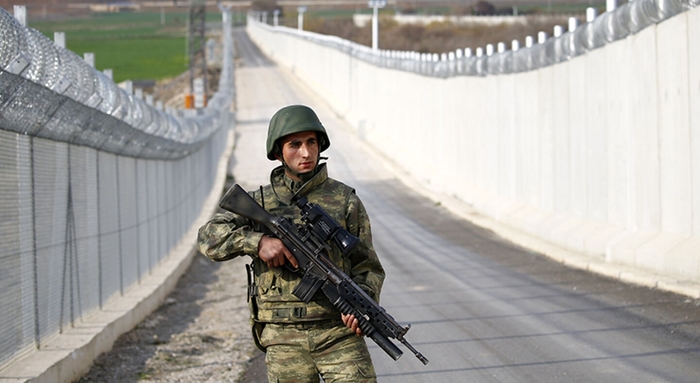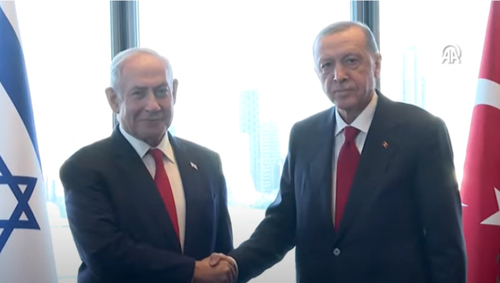How to understand the fighting in Syria between the central government in Damascus and its many foes, including Alawites, Kurds, Druze, and the Israel Defense Forces?
During its first quarter-century of independence, 1946-70, a weak Syrian state served as the battlefield for its many stronger neighbors to project their ambitions, a predicament summed up in the title of a well-known book, The Struggle for Syria. That struggle disappeared through the four decades of rule by Hafez and his son Bashar al-Assad only to reemerge during the civil war of 2011-24 and then reach new heights after the overthrow of Bashar in December 2024.
His overthrow nearly eliminated Iran as a factor in Syria, leaving Türkiye and Israel as the primary external combatants. While Syrians are the main protagonists, they effectively serve as proxies for the governments of those two most powerful neighbors.
Each of Türkiye and Israel faces three major risks in Syria.
Start with Ankara and its strongman Recep Tayyip Erdoğan, who has dominated since 2002. The outbreak of the Syrian civil war in 2011 led to some 3.1 million Syrians registering as refugees in Türkiye, along with an estimated one million more living there unregistered. Their presence has led to increased resentment and tension. Accordingly, Erdoğan oversaw the walling off by 2017 of nearly the entire 566-mile border to discourage more refugees. Continued fighting in Syria will almost certainly cause more Syrians to across into Türkiye and more problems for Ankara.
 On March 2, 2017, a Turkish soldier patrolled Türkiye's walls at its border with Syria. |
Second, Turkish officialdom worries that the fracturing of Syria into autonomous ethnic polities will serve as a prototype for their country. This fear mainly concerns the Kurds, who already control autonomous regions in Iraq and Syria, but it could spill beyond them to others, such as Alevis and Arabic speakers.
Third, and unfortunately for Erdoğan, the Republic of Türkiye's century-long existence, with its legacies of institutions and treaties, constrains his freedom of action. Therefore, he sees his agent Hayʼat Tahrir al-Sham as an instrument to wage aggressive jihad, especially against Israel. For this, however, he needs a strong central government in Damascus; a weak one undercuts his jihadist ambitions.
 IDF Brig. Gen. (ret.) Amal As'ad, himself Druze, on July 16, 2025, accused Syria's central government of seeking to "eliminate the Druze." |
Second, Netanyahu has a moral and political obligation to the 140,000 Druze citizens of Israel. When a retired brigadier general of the Israel Defense Forces, a Druze, accuses Syria's leader of wanting to "eliminate the Druze," Jerusalem cannot snub him. Much less can it ignore the thousand or so Israeli Druze who breached the border with Syria to protect their brethren. Plus, Israel's Druze vote not as a community but individually, so a prime minister instinctively seeks to win its members' electoral support.
Finally, the joint Israel-U.S. attack in June 2025 heavily damaged Iran's nuclear program but did not destroy it, meaning Jerusalem may again wish to send Israeli jets streaking through Syrian skies. Israel will then prefer the Syrian government down below to remain weak and unable to control its airspace.
In parallel, then, each of Erdoğan and Netanyahu have two defensive worries and one offensive motive to fight in Syria.
 Netanyahu and Erdogan have met in-person only once, on Sep. 19, 2023, at the United Nations. (Did they purposefully choose a bright background to obscure their faces?) |
Also in parallel, Türkiye's Russian patron (yes, NATO membership notwithstanding) and Israel's American patron each disapproves of its clients' actions. Vladimir Putin prioritizes retention of Russian air and naval bases in Syria, so a weak central government in Damascus serves his interests. Donald Trump met with and endorsed Erdoğan's proxy president in Damascus; the U.S. envoy to Syria made urgent pleas for the fighting to end; and a White House official described Netanyahu as acting "like a madman." So far, however, these patrons have had limited influence.
Two conclusions: What appeared to be a Turkish opportunity in Syria a half-year ago now looks like an Israeli one, and what comes next for Syria will largely be determined by decisions made in Ankara and Jerusalem.
Mr. Pipes (DanielPipes.org, @DanielPipes) is founder of the Middle East Forum and author of Israel Victory: How Zionists Win Acceptance and Palestinians Get Liberated (Wicked Son). © 2025 by Daniel Pipes. All rights reserved.
July 23, 2025 update: Immediate confirmation of my argument above: "Syria formally invites Turkey to rebuild its military force."
Aug. 13, 2025 update: Al-Monitor: Turkey and Syria signed a long-anticipated military cooperation agreement in Ankara Wednesday for military training and assistance."
Sep. 9, 2025 update: An anonymous Israeli source: "What the al-Sharaa regime does not understand through negotiations, it will understand through force. Turkey is trying to provoke us and drag us into a military confrontation. If necessary, we will move toward a major military operation in Syria. We are not afraid of Turkey, but we do not seek conflict."